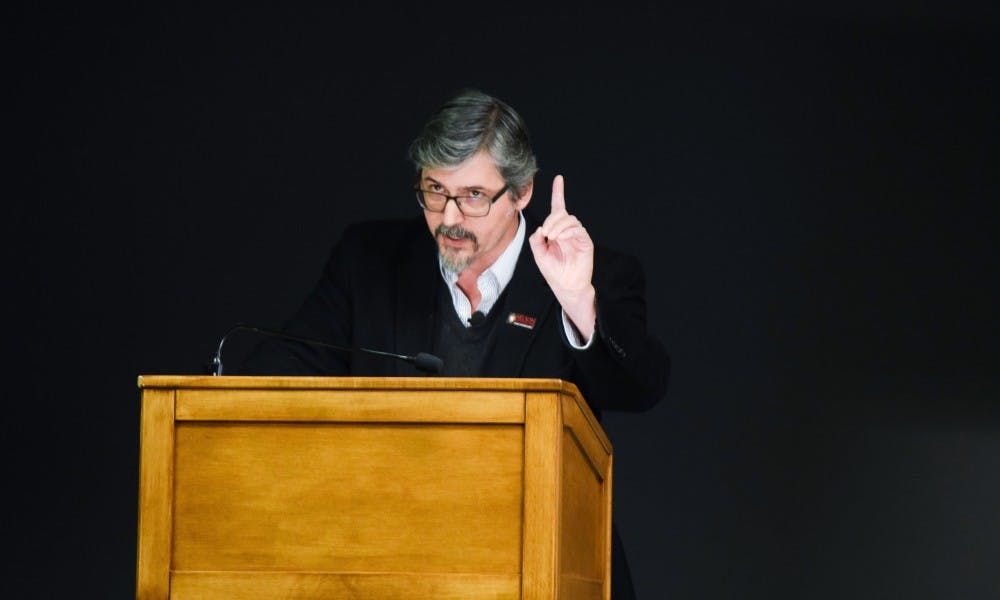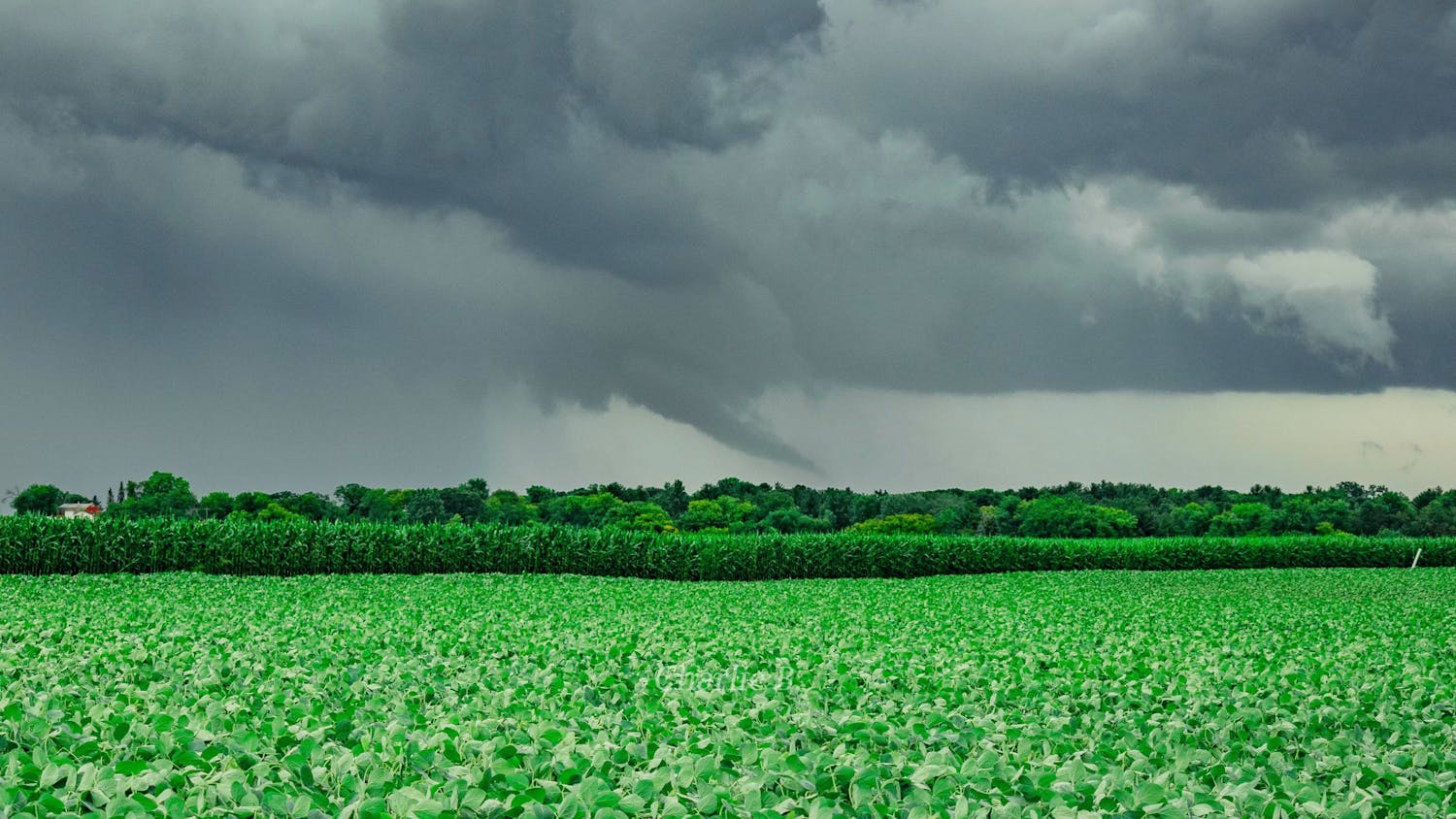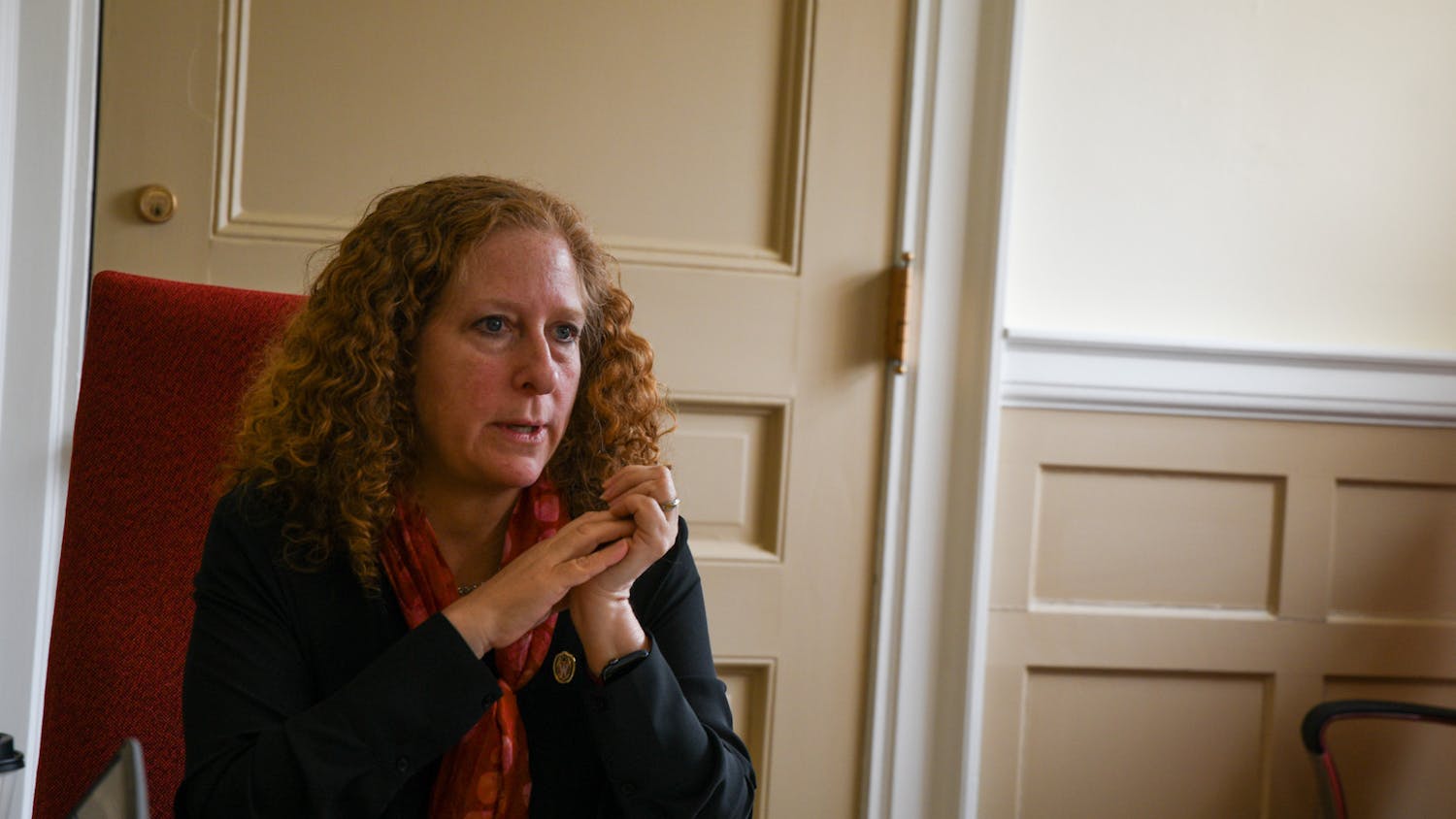In order to better visualize a future transformed by global climate change and to promote awareness for the problems it will cause, its impact must be scaled down to a local level to make it more accessible to local interests, according to environmental advocate Paul Robbins.
Robbins, director of Nelson Institute for Environmental Studies, said in a lecture Tuesday that the vehicle for this communication is the Wisconsin Idea–the UW System’s grounding principle for outreach to the state.
For Robbins, the most effective way to help people care about the environment is to show them how they are affected by it.
“If you tell people that the environment is something they share, they’re going to ignore you, because that’s not what they value. You have to start from what people value,” Robbins said.
By bringing climate change to a personal level, Robbins said he hopes that the issue will be more important to more people.
“Climate change isn’t the place where people make progress because it isn’t the highest priority on people’s lists right now,” he said. “How do you get people to think about these issues in a way that connects to their lives? People in Wisconsin want to make decisions about their future.”
Robbins noted the solution comes back to the Wisconsin Idea and must involve collaboration and communication between the university and the rest of the state.
“What I want to suggest is that the Wisconsin Idea had it right all along,” Robbins said. “If we had started with the Wisconsin Idea on climate change, we’d be in a totally different landscape now.”
While Robbins says that mitigation may not be feasible, there is still time to adapt for what is coming. Studying the wide scope climate change at UW-Madison will require all levels of interdisciplinary engagement, he said, which is what the Nelson Institute works to facilitate.
“These problems are existential and long term, for urban growth, for equity, for racial justice, for people aging in place, how are they going to get the information they need to solve these problems? The answer has got to be the university,” Robbins said.






